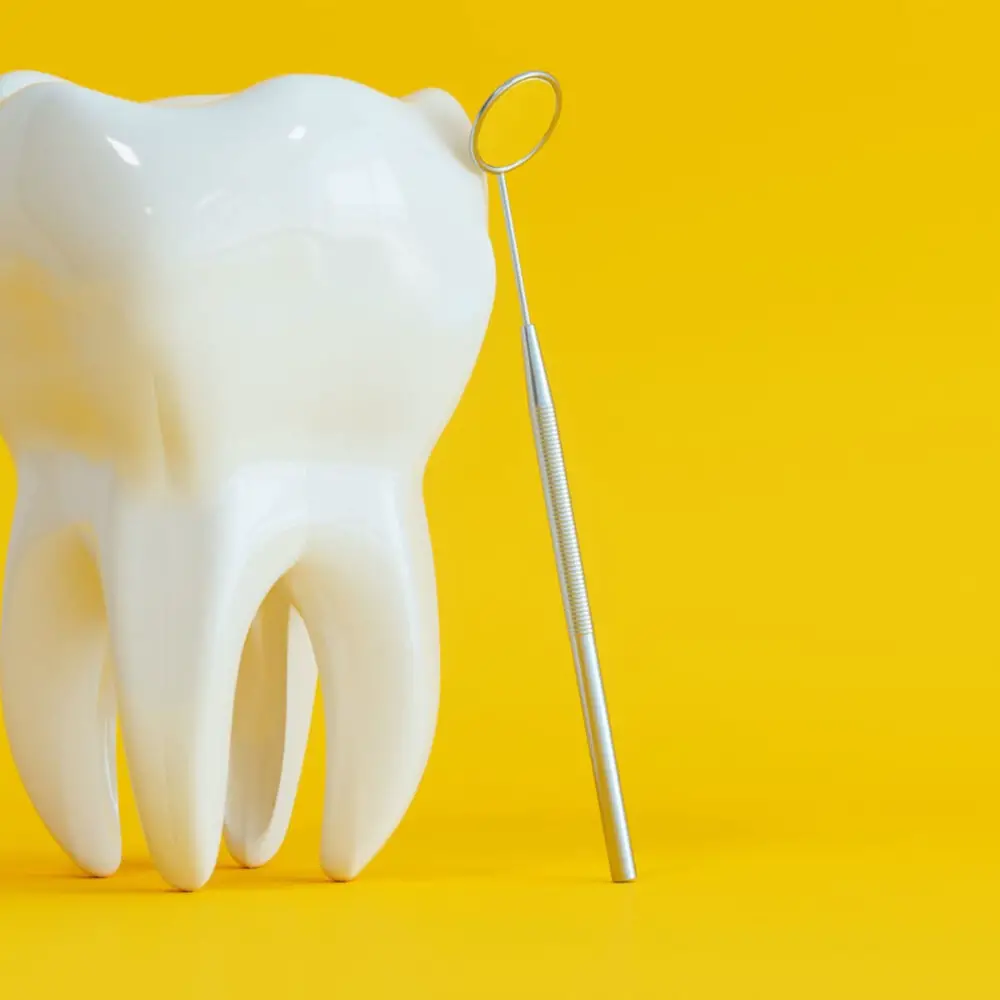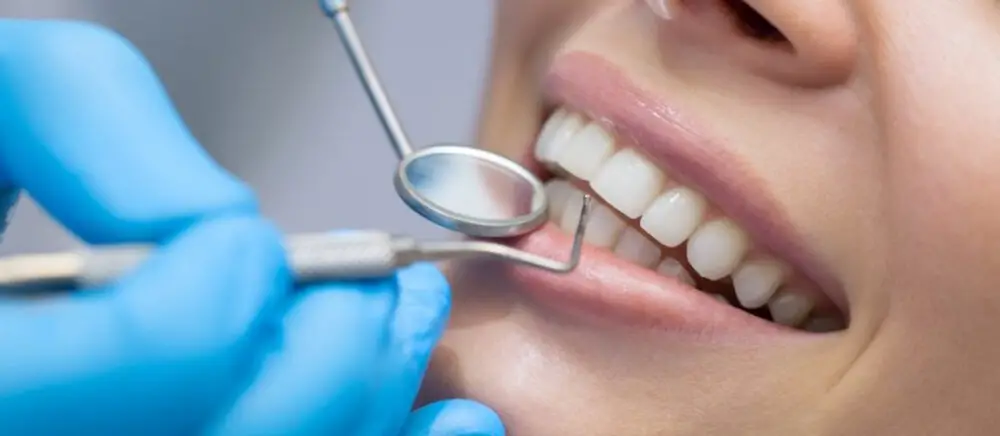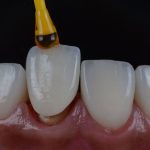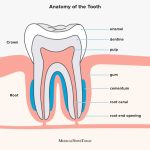Why Do My Teeth Hurt When I Have a Cold? Understanding the Connection Between Toothache and Cold Symptoms

When you catch a cold, your body goes through a series of unpleasant symptoms, such as a runny nose, cough, and sore throat. However, you might not expect to experience tooth pain. Surprisingly, a toothache is a common symptom of a cold or flu, and it can be quite unbearable. Understanding the connection between toothache and cold symptoms can help you manage the pain and prevent any complications. The reason behind toothaches during a cold is not straightforward. It can be a combination of factors, such as sinus pressure, inflammation, and tooth sensitivity. The sinuses are located around your nose and can become inflamed and congested when you have a cold, which can put pressure on your teeth and cause pain. Additionally, the inflammation can spread to the tissues around your teeth, causing further discomfort. Moreover, a cold can make your teeth more sensitive to hot and cold temperatures, making it painful to drink or eat anything. In this article, we will explore the various causes of toothaches during a cold and how to alleviate the pain.
Toothache and cold symptoms are two conditions that can cause discomfort to many individuals. Toothache is a sharp, throbbing pain that is usually caused by decay or infection in the tooth. Cold symptoms, on the other hand, are caused by a viral infection that affects the upper respiratory system. Common cold symptoms include a runny nose, congestion, cough, and sore throat. However, the two conditions are often interconnected, as the sinuses in the upper jaw are located close to the roots of the upper teeth. This means that a cold can cause sinus pressure that can irritate the nerves of the teeth, leading to toothache. Hence, it is essential to seek prompt medical attention to address both conditions and alleviate the discomfort.
It is crucial to comprehend the correlation between toothache and cold symptoms as it can help individuals identify the root cause of their discomfort and take appropriate action. A cold can lead to sinus and nasal congestion, resulting in pressure buildup in the maxillary sinus, which is located near the upper teeth. This pressure can cause pain and sensitivity in the teeth, mimicking the symptoms of a toothache. Knowing this connection can prevent individuals from undergoing unnecessary dental procedures and enable them to prioritize treating their cold symptoms. Additionally, understanding this relationship can help individuals maintain good oral hygiene during a cold, which is vital to prevent further dental problems. Hence, comprehending the connection between toothache and cold symptoms is essential for individuals to take care of their dental and overall health.
Anatomy of the Teeth and Sinuses

Anatomy of the Teeth and Sinuses is a crucial aspect of understanding the connection between toothache and cold symptoms. Teeth are composed of different layers, including the enamel, dentin, and pulp. The enamel is the outermost layer, which is responsible for protecting the teeth from decay and damage. Underneath the enamel layer is the dentin that provides structural support to the tooth. The pulp, located in the center of the tooth, contains nerves and blood vessels responsible for sensation and nourishment of the tooth. On the other hand, sinuses are air-filled cavities located in the skull that are connected to the nasal passages. The sinuses are responsible for regulating air pressure, trapping dust, and preventing infections. When a person has a cold, the sinuses become inflamed, leading to a buildup of mucus and pressure, which can affect the teeth. In some instances, the inflammation can spread to the teeth, causing toothache and other dental problems. Thus, the knowledge of the anatomy of the teeth and sinuses is essential in understanding the relationship between toothache and cold symptoms, which can lead to appropriate management of the condition.
An understanding of dental anatomy is essential to comprehend the relationship between toothache and cold symptoms. Teeth are composed of four layers: enamel, dentin, pulp, and cementum. The enamel, the outermost layer, is a hard mineralized tissue that provides protection to the tooth. The dentin is located underneath the enamel and is softer than the enamel. The pulp is the innermost layer of the tooth, which contains nerves and blood vessels, providing nourishment to the tooth. The cementum is a thin layer of tissue that covers the root of the tooth. Teeth are connected to the jawbone by the periodontal ligament. Understanding these structures can help us identify the cause of tooth pain and determine the appropriate treatment.
Sinuses are air-filled cavities located within the bones of the face and skull. They are responsible for producing mucus, which helps to keep the nasal passages moist and free of irritants. The sinuses are located in close proximity to the upper teeth, which means that when they become inflamed or infected, it can cause toothache or sensitivity. This is because the sinuses and teeth share nerve pathways, so pain in one area can radiate to the other. Additionally, the pressure created by sinus congestion can cause discomfort in the teeth and jaw. It’s important to address sinus issues promptly to alleviate toothache symptoms and prevent further complications.
Cold symptoms can wreak havoc on the sinuses, causing inflammation and congestion. This can lead to a buildup of pressure in the sinus cavities, which can then put pressure on the roots of the teeth. As a result, tooth pain and sensitivity can develop, particularly in the upper molars. The pain may be intermittent or constant and may feel like a dull ache or a sharp, shooting pain. Additionally, the increased mucus production associated with colds can create an environment conducive to bacterial growth, which can lead to tooth decay and cavities. If you are experiencing tooth pain during a cold, it is essential to seek the advice of a dental professional to rule out any serious underlying issues.
Common Causes of Tooth Pain During a Cold

Tooth pain is a common symptom experienced by many people during a cold. This discomfort usually occurs because of sinus pressure and inflammation that affects the nerves surrounding the teeth. When the sinuses become inflamed due to a cold, they can produce excess mucus that blocks the sinuses, causing pressure to build up. This pressure can then transfer to the teeth, leading to pain and sensitivity. Another common cause of tooth pain during a cold is tooth decay. When you have a cold, your immune system is often weakened, making it easier for bacteria to thrive in your mouth. This can lead to the development of cavities and tooth decay, which can cause tooth pain and sensitivity. Additionally, people with colds tend to breathe through their mouths more often, which can dry out the mouth and lead to a decrease in saliva production. Without enough saliva to wash away bacteria and neutralize acid, the risk of tooth decay and cavities increases, leading to tooth pain and discomfort.
The common cold is a viral infection that affects the upper respiratory system. The symptoms of a cold usually develop within two to three days after exposure to the virus and can last up to a week or more. The most common symptoms include a runny or stuffy nose, sore throat, cough, headache, fatigue, and a general feeling of malaise. Some people may also experience a fever, muscle aches, and nasal congestion. While cold symptoms can vary in severity, they are generally mild and can be managed with over-the-counter medications and home remedies. It is important to stay hydrated and get plenty of rest while recovering from a cold to help the body fight off the infection.
Sinus pressure is a common symptom of a cold or flu, and it can cause tooth pain. The sinuses are located close to the upper teeth and are connected by small passageways. When the sinuses become infected or inflamed, the pressure can build up and affect the surrounding teeth. This can result in pain or discomfort that feels like a toothache. Additionally, sinus pressure can cause referred pain, which means that the pain is felt in a different area than the source of the problem. This can make it difficult to pinpoint the exact cause of tooth pain. It’s important to address sinus pressure and treat any underlying cold or flu symptoms to alleviate tooth pain caused by sinus pressure.
Tooth decay and gum disease can worsen cold symptoms due to the inflammation and infection they cause. When the body is already fighting off a cold virus, the added stress of a dental infection can weaken the immune system and prolong the duration of the illness. Additionally, sinus pressure and congestion from a cold can lead to tooth pain and sensitivity, further exacerbating any existing dental issues. It is crucial to maintain good oral hygiene and address any dental problems promptly to prevent them from complicating the common cold or other illnesses.
Treatment and Prevention of Tooth Pain During a Cold

Tooth pain during a cold can be a frustrating and uncomfortable experience. Fortunately, there are several treatment and prevention options available to help alleviate the pain and discomfort associated with cold-related toothaches. One option is to take over-the-counter pain medications such as ibuprofen or acetaminophen to help manage the pain. Additionally, using a warm compress on the affected area can help to reduce inflammation and provide relief. It is also important to stay hydrated and avoid foods that are excessively hot or cold, as these can exacerbate tooth pain. For persistent or severe tooth pain, it is recommended to consult with a dentist or healthcare provider to determine the underlying cause and develop a more targeted treatment plan. Prevention is also key in managing tooth pain during a cold. Maintaining good oral hygiene habits, such as brushing twice a day and flossing regularly, can help to prevent tooth decay and gum disease, which can contribute to tooth pain. It is also important to stay healthy overall by getting enough rest, eating a balanced diet, and avoiding smoking and excessive alcohol consumption. If you are prone to sinus infections or other respiratory issues, taking steps to manage these conditions can also help to prevent tooth pain during a cold. By taking a proactive approach to dental and overall health, you can minimize the risk of experiencing tooth pain and other unpleasant symptoms during a cold.
Tooth pain during a cold can be extremely uncomfortable, but there are several at-home remedies that can help alleviate the discomfort. One of the most effective ways to reduce tooth pain is to apply a cold compress to the affected area. This can help to reduce inflammation and numb the nerves, providing relief from the pain. Another popular remedy is to rinse the mouth with warm salt water, which can help to reduce inflammation and kill bacteria. Additionally, over-the-counter pain medications such as ibuprofen or acetaminophen can help to reduce pain and fever associated with a cold, providing relief from tooth pain as well. Overall, there are several options for at-home remedies to alleviate tooth pain during a cold, and it’s important to find the one that works best for you.
It is essential to seek professional dental care when experiencing tooth pain or discomfort, especially if it persists for an extended period or is accompanied by other symptoms such as fever, swelling, or difficulty swallowing. Additionally, if tooth sensitivity or pain is triggered by cold or hot temperatures, it may indicate an underlying dental issue, such as a cavity or infection. Ignoring dental problems can lead to more severe complications, including tooth loss and gum disease. Therefore, it is crucial to schedule regular dental checkups and seek prompt treatment for any dental concerns to maintain good oral health and prevent further damage.
To prevent tooth pain during a cold, there are several steps that you can take. Firstly, ensure that you are practicing good oral hygiene by brushing twice a day and flossing regularly. This will help to remove any bacteria that could potentially cause tooth decay, which can worsen during a cold. Additionally, avoiding sugary or acidic foods can help to prevent tooth sensitivity and pain. It is also important to stay hydrated by drinking plenty of water to keep your mouth moist and reduce the likelihood of tooth pain. Lastly, consider using a humidifier to add moisture to the air and prevent dry mouth, which can also cause tooth pain. By following these steps, you can minimize the risk of tooth pain during a cold and maintain good oral health.
Other Possible Causes of Tooth Pain During a Cold

In addition to sinus pressure, there are other potential causes of tooth pain during a cold. One possibility is that the cold virus can cause inflammation throughout the body, including in the gums and teeth. This inflammation can lead to discomfort and sensitivity in the teeth, even if there is no underlying dental issue. Additionally, the act of coughing and sneezing can put pressure on the teeth and jaw, leading to pain and discomfort. This is especially true if a person has a chronic condition like TMJ, which can be exacerbated by the repetitive motions involved in coughing and sneezing. Another potential cause of tooth pain during a cold is dehydration. When a person is sick, they may not feel like drinking as much water as usual, leading to dehydration. Dehydration can cause the mouth and throat to become dry, which can lead to discomfort in the teeth and gums. Additionally, dehydration can cause the body to produce less saliva, which can increase the risk of tooth decay and gum disease. To prevent tooth pain and other oral health issues during a cold, it is important to stay well-hydrated by drinking plenty of water and other fluids.
While sinus congestion and pressure are the most common causes of tooth pain during a cold, there are other less common culprits to consider. One such cause is bruxism, or teeth grinding, which can occur during the night when the body is under stress from illness. This can cause tooth sensitivity and even fractures in severe cases. Additionally, temporomandibular joint disorder (TMJ) can cause pain in the jaw and teeth during a cold due to increased inflammation and pressure in the affected area. Finally, a sinus infection can spread to the teeth and cause pain and discomfort. It is important to consider these less common causes of tooth pain during a cold and seek appropriate treatment to alleviate symptoms and prevent further complications.
To differentiate between tooth pain caused by a cold and other dental issues, it is important to consider the nature of the pain. Tooth pain caused by a cold is typically accompanied by other cold symptoms, such as a runny nose, cough, or sore throat. The pain may also be more widespread, affecting multiple teeth, and may be more of a dull ache than a sharp pain. If the pain is localized to one tooth, it may be a sign of a dental issue such as a cavity or abscess. Additionally, tooth pain caused by a cold is usually temporary and will subside once the cold has passed, whereas dental issues may require treatment to resolve. It is always best to consult with a dentist to determine the cause of tooth pain and receive appropriate treatment.
Tooth pain and cold symptoms are often connected, and understanding this connection can help alleviate discomfort during a cold. When we have a cold, our sinuses can become congested, causing pressure to build up in the head and face. This pressure can then affect the teeth, leading to tooth pain or sensitivity. Additionally, the inflammation caused by a cold can also spread to the gums, causing them to become swollen and tender. It is important to address these symptoms promptly to prevent further discomfort and potential dental issues. By staying hydrated, using a saline nasal spray, and taking over-the-counter pain relievers, individuals can manage both their cold and tooth pain symptoms simultaneously.
If you experience tooth pain during a cold, it could be due to sinus pressure or an infection. However, if the discomfort persists even after your cold subsides, it is crucial to seek dental care. Ignoring tooth pain can lead to severe dental issues, including gum disease, tooth loss, and infections that can spread to other parts of the body. In addition, pain can indicate a cavity or a cracked tooth, which requires immediate attention. Regular dental checkups can help identify and treat these issues before they become more severe. Seeking dental care when tooth pain persists is essential for both your dental and overall health, so don’t delay in scheduling an appointment with your dentist.
In conclusion, experiencing tooth pain during a cold can be a challenging experience. However, there are several recommendations and remedies that can help manage the discomfort. Maintaining good oral hygiene, drinking plenty of fluids, and avoiding sugary foods can help prevent tooth decay and reduce inflammation. Over-the-counter pain relievers such as ibuprofen or aspirin can help alleviate the pain, while applying a warm compress to the affected area can provide temporary relief. If the pain persists or worsens, it is essential to seek professional dental advice to rule out any underlying dental issues. Overall, taking proactive measures and seeking prompt medical attention can ensure a speedy recovery and prevent further complications.
Conclusion

In conclusion, the connection between toothache and cold symptoms may seem like an unlikely correlation at first glance, but it is a well-documented phenomenon that is rooted in the anatomy of our bodies. As we battle through the congestion and inflammation that come with a cold, the pressure and swelling can affect not only our sinuses but also our teeth and gums. It is important to pay attention to any dental discomfort during a cold and seek the advice of a dental professional if needed, as untreated dental issues can lead to more serious health problems down the line. By understanding the link between toothache and cold symptoms, we can take better care of our oral health and overall well-being.







